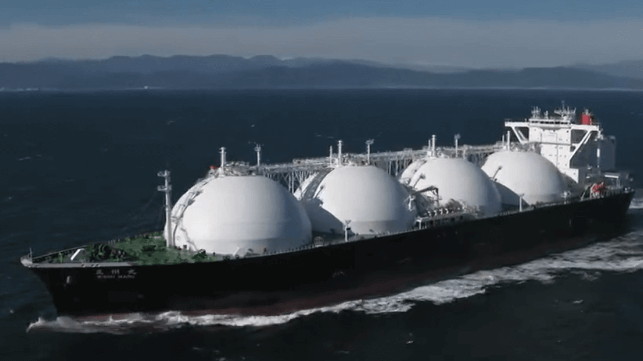Amidst Russian Gas Concerns, Japan Diverts Extra LNG to Help Europe

After appeals from the U.S. and the EU, the government of Japan has agreed to direct any surplus LNG shipments to Europe, with the first cargoes arriving in March. The move is intended to help address fears that Russia might turn off the taps on Europe's natural gas supply in the event of an invasion of Ukraine.
Japan is a leading importer of LNG, and its energy companies hold long term take-or-pay contracts with multiple suppliers. Some of these contracted volumes are already sold to European customers on a regular basis, and Japan will add several hundred thousand tons of LNG onto previously-arranged sales. In addition, Japan's government has asked the nation's LNG importers and traders to support European needs over the months to come.
"We decided to meet the requests as long as a stable supply to Japan is ensured," said minister of industry Koichi Hagiuda. "[Several] destination-free LNG ships controlled by Japanese companies are heading to and arriving Europe in February."
"Japan's assistance to Europe is an example of how President [Joe Biden] and Prime Minister [Fumio Kishida] are working closely together with like-minded partners to deter Russian aggression against Ukraine, and uphold our shared values," said U.S. ambassador to Japan Rahm Emmanuel in a statement.
The diplomatic effort to ensure supplies to Europe also includes outreach to major suppliers like Qatar, the world's second-biggest producer. However, Russia supplies fully 40 percent of Europe's natural gas, and some analysts suggest that there simply isn't enough LNG available for sale to fill the gap if Russia stops pipeline deliveries. A European run on LNG would drive up global prices, which have already hit historic levels once this winter.

that matters most
Get the latest maritime news delivered to your inbox daily.
"While the highly publicized hunt for alternative supplies has value as diplomatic theater it is unlikely to improve Europe’s energy security very much," cautioned Reuters energy analyst John Kemp in a research note. "Globally, there is little spare capacity at any stage in the LNG supply chain, as recent record prices have shown, so increased supplies to Europe could only come at the expense of reduced supplies in other regions."
U.S. LNG shipments to Europe have ballooned since December, responding to tremendous spot prices found on the EU market. According to Bloomberg, this trade has drawn so many LNG carriers into the Atlantic basin that day rates for the vessel class have crashed to zero. In the event an LNG emergency sealift is needed in the weeks ahead, tonnage availability may be well-supplied.
